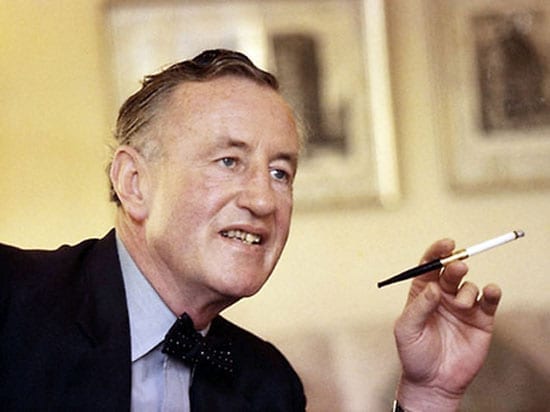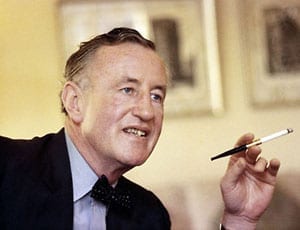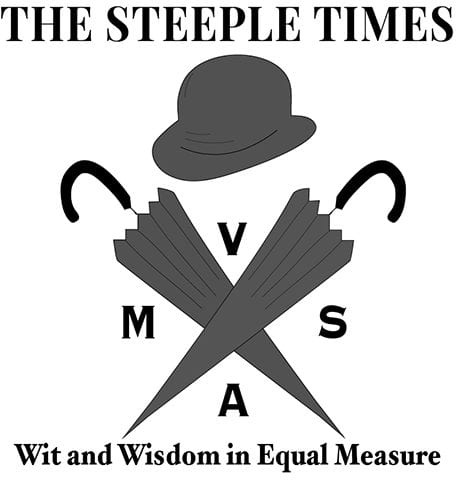James Murphy examines his romantic heroes, Ian Fleming and James Bond
I was privileged to attend the recent Masterpiece art and antiques fair in Chelsea. For me, the undoubted highlight was coming face to face with the letters of Ian Fleming, the creator of James Bond, on Peter Harrington’s stand.

I have always admired Fleming primarily because he understood the human condition, notably the dynamics of romance. James Bond as a romantic hero? Ian Fleming as a romantic idealist? It is a tough proposition but let me defend my case with reference to Fleming’s biography and the legacy of James Bond.
A distinguished Etonian sportsman, Fleming worked at Reuters via stints in the city and was a leading contributor to the refined society gossip column ‘Atticus’ in The Sunday Times. His finest hour pre-Bond, however, was an innovative tenure at Naval Intelligence.
Here, Fleming crafted new methods for gathering information, fusing the very best of field-men at SIS to the expertise of foreign correspondents. It was a winning formula, outlasting the Nazi menace and aiding British triumphs during the Cold War.
James Bond is in many senses an extension of Fleming, coupled with the DNA of fellow pulp heroes from Bulldog Drummond to John Hannay and Simon Templar; peppered with nods to the literary styles of Graham Greene, F. Scott Fitzgerald, Ernest Hemingway and Somerset Maugham.
Bond is competent in all areas required by missions for HMG’s intelligence service. He invariably becomes embroiled in plots beyond his initial forecasts, thereby lending him an underdog or everyman quality. It’s “one man against the secret police”.
By no means perfect, Bond is a selfish creature of habit; tending to lecture others on his own narrow world view, punctuated by the kind of extreme violence one might associate with today’s gangster underworld. But he is redeemed by a genuine sense of justice and doggedly determined loyalty to the beliefs he champions. Critically, Bond has charm and a distinctive style.
Fleming arguably uses Bond to relive and perhaps redeem his own romantic experiences and philosophy. Bond is neither soppy sentimentalist nor proponent of monotonous monogamy. He nevertheless makes women feel desired, whilst relaying Fleming’s thesis that romance is by its very nature a choreographed drama. It begins with a childlike blast of optimism and excitable energy, develops through a dynamic sequence of face-offs over dinner dates and discovery and ends inevitably in death.
There might be a literal death (Tracey, Bond’s wife is killed on their wedding day) or it’s a brutal loss of innocence and image (Vesper Lynd in Casino Royale, is unmasked as a traitor; Gala Brand in Moonraker bathetically cuts ties with Bond when the case is closed).
Death through the inevitable march of time and drably dull domesticity is another tool used by Fleming. Note Bond’s fear of marital warfare in the short story Quantum of Solace and the final hint of despair at a pipe and slippers ending to The Man with the Golden Gun, (aptly the final Bond novel, edited by Kingsley Amis after Fleming’s death).
The point is clear: Fleming understood romance: the sexuality, emotional yearning and difficult developments in character associated with the experience. It is perhaps that quality that sustained the film franchise, too. When Francis Coppola was consulted on the ‘rogue’ Bond film Never Say Never Again he said: “It’s a romance”.
Each Bond actor is defined by which aspect of male appeal they personify for women. Sir Sean Connery was cast on a nod from the late, great Albert R. Broccoli’s wife, Dana (“he has ‘it’”). George Lazenby brought raw physicality and Sir Roger Moore gifted the role with impeccable gentlemanly manners. Pierce Brosnan offered chiselled confidence and corporate calm. Timothy Dalton brought deadly strength fused to intelligent sensitivity: an approach that has also worked for the current Bond, Daniel Craig.
Bond 24 is due in cinemas in December 2015. There are murmurings of a delay in script drafts. No doubt things will pan out for the best at the hands of producer Barbara Broccoli and visionary director Sam Mendes.
“We always go back to Fleming”, Barbara Broccoli once remarked, when addressing problems in writing the films. If they follow that formula again, one can therefore expect the film to have a truly romantic quality and win another day at the box office.
James Murphy is a graduate of New College, Oxford and the University of Law. He is currently working on a screenplay named the Anthony Claret Adventures.
Subscribe to our free once daily email newsletter here:








It was Ian Fleming’s character James Bond that made me take up smoking. Sean Connery gave it a flavour of elegance and sophistication and it made me feel so macho. We are still in the European Union, so Broccoli and Connery can expect a lawsuit, why should I take responsibilty for my own health in the nanny state.
The exploits of Bond – as portrayed on the silver screen – give a largely erroneous, if highly enjoyable, picture of an intelligence officer of Her Majesty’s Secret Intelligence Service (MI6).
During the Cold War, the KGB would send copies of the 007 films back to Moscow in the diplomatic bag. Screened in detail and analysed, in case they revealed some hitherto unknown element of tradecraft or piece of kit used by British intelligence!
There was also a spin-off benefit from the Bond films. In many countries Britain was regarded as the most effective practitioner of espionage. And Sir Colin McColl, a former Chief of SIS, said: “007 was pure hokum. However the films proved to be the greatest recruiting-sergeant for MI6!”
Peter Sellers and David Niven’s portrayal of 007 in Casino Royale (1967) was a more realistic version in depicting a real life modern day M16 spy, restricted by European Union red tape and regulations. Think health and safety at all times.